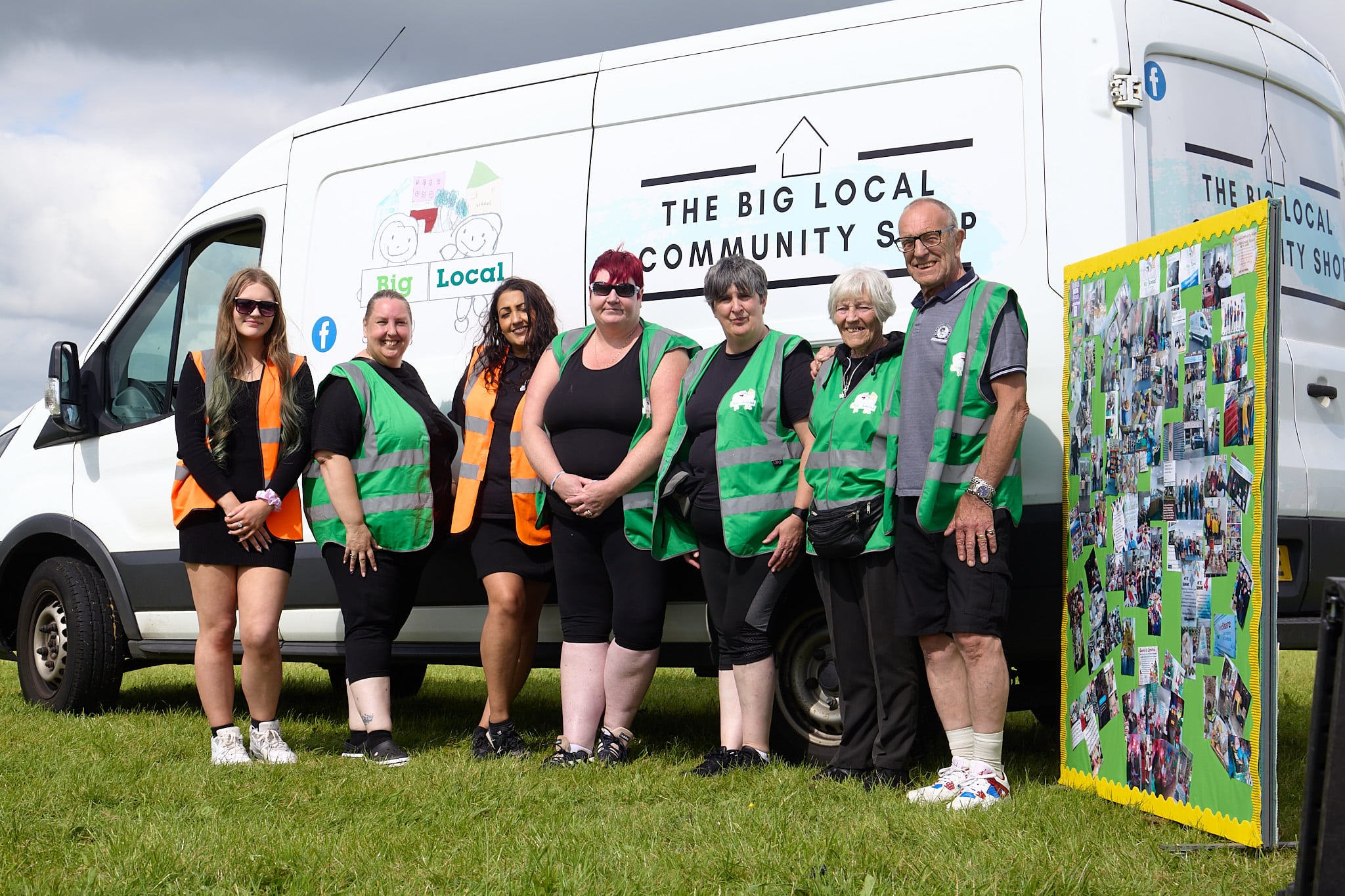Lessons in resident-led change: Celebrating 50 areas completing their Big Local journey
Since the Big Local programme was established in 2010, communities across England have been deciding how best to spend £1million, to create lasting local change. As we celebrate 50 of the 150 areas completing their Big Local journey, Rachel Rowney, Local Trust’s chief operating officer, reflects on a major milestone.
This autumn marks a significant milestone for the Big Local programme. We’re celebrating 50 areas successfully completing their Big Local journey – one third of the 150 areas awarded £1million by the National Lottery Community Fund in 2010.
This achievement is not just the culmination of years of hard work and dedication of volunteers, but also a powerful testament to the impact of grassroots, resident-led efforts in transforming neighbourhoods across England.
From the outset, Big Local was designed to be radically different from other funding programmes. In contrast to conventional, top-down and time-limited funding, awards were made on the basis that they could be spent over time, at a community’s own pace, and according to their plans and priorities over 10 to 15 years.
This bottom-up approach, driven by the ethos ‘No one knows a place better than the people who live there,’ has fostered a unique model of community development, allowing residents to identify their own goals and ambitions and make decisions on how to achieve those using the £1million allocated to them.
A uniquely flexible funding model
The flexibility of the Big Local funding model, giving communities 10 to 15 years to allocate their funding to meet local needs, has enabled residents to build collective confidence and capacity.
Critically, it has also meant that areas can spend at a pace that suits them, build local and external relationships, try new things, learn and pivot when things don’t go to plan and, crucially, build trust within their communities.
This has been especially important given these areas were identified to be part of the programme because they had previously missed out on their fair share of funding and historically had little to no social infrastructure – the framework of institutions and physical spaces that support shared civic life.
In Blackburn, where Shadsworth with Whitebirk Big Local has become the 50th area to complete their Big Local journey, investing in a community shop has been key for creating sustainable local services.
Through the shop, they’ve been able to provide low-cost food boxes to families, feed children during the summer holidays, and even tackle knife crime – support that will continue beyond the programme.
As their chair Elaine explains: “I feel proud that we’re the 50th area to close out. What’s really stood out for me is how much we’ve helped people in the community, especially children.
“We’re continuing with all the great projects that we’ve initiated over the last 10 years. And we’ll strive to help more and more people, so they know they aren’t alone.”

Shadsworth with Whitebirk Big Local partnership members and volunteers stand in front of The Big Local Community Shop van. Photo: Local Trust/Orrin Saint Pierre
Like the Big Local areas, Local Trust – as the funder delivering the programme – has also learned what works and adapted delivery to ensure that areas receive the support they need as they progress through the programme.
This has included investment in establishing and developing a Community Leadership Academy as well as providing support from partner organisations, to help with everything from managing community projects and assets to setting up legacy organisations.
Celebrating success
The nature of Big Local means that no two areas are alike. Alongside Shadsworth with Whitebirk Big Local, the 50 areas that have completed their Big Local journey have delivered an array of impactful local projects and initiatives.
For Dover Big Local, addressing gaps in local services became a priority. By bringing private and voluntary organisations together with the local council, they were able to better meet residents’ needs. They are now continuing on as a community interest company, raising additional funds and expanding their services.
In London’s Barking and Dagenham, North meets South Big Local has transformed the area by bridging the gap between its two distinct communities separated by the A12. Through their Big Local, residents have taken on initiatives to transform local infrastructure, foster new projects and empower residents to share ideas that may have otherwise gone unheard. One of their most notable achievements has been the transformation of Tantony Green, which now serves as a vibrant community hub.
Meanwhile, in Wecock Farm near Portsmouth, the community’s aims were to raise young people’s aspirations, connect isolated residents and support community wellbeing. They went on to provide youth services, activities and support; engaged young people in the design and build of a local skate park; and organised events and activities for older residents to meet and connect.
What’s next for neighbourhoods?
Big Local will end in 2026, but the learnings and insights the programme has provided will remain invaluable in considering the future for community-led programmes and for reaching the country’s doubly disadvantaged neighbourhoods – those areas that are amongst the poorest in the country but also the most lacking in social infrastructure.
Central to this vision is the provision of long-term, flexible funding, which could be significantly bolstered by the establishment of a Community Wealth Fund. This would ensure that communities have access to sustained resources that empower them to address their unique challenges and build resilience for the future.
And while we advocate for future investment in our most deprived neighbourhoods, we’ll also be continuing to support the 100 Big Local areas still busy spending their funding and delivering impactful projects in their communities – and sharing their stories and expertise on the far-reaching impact resident-led change can achieve.
Rachel Rowney is chief operating officer at Local Trust.
